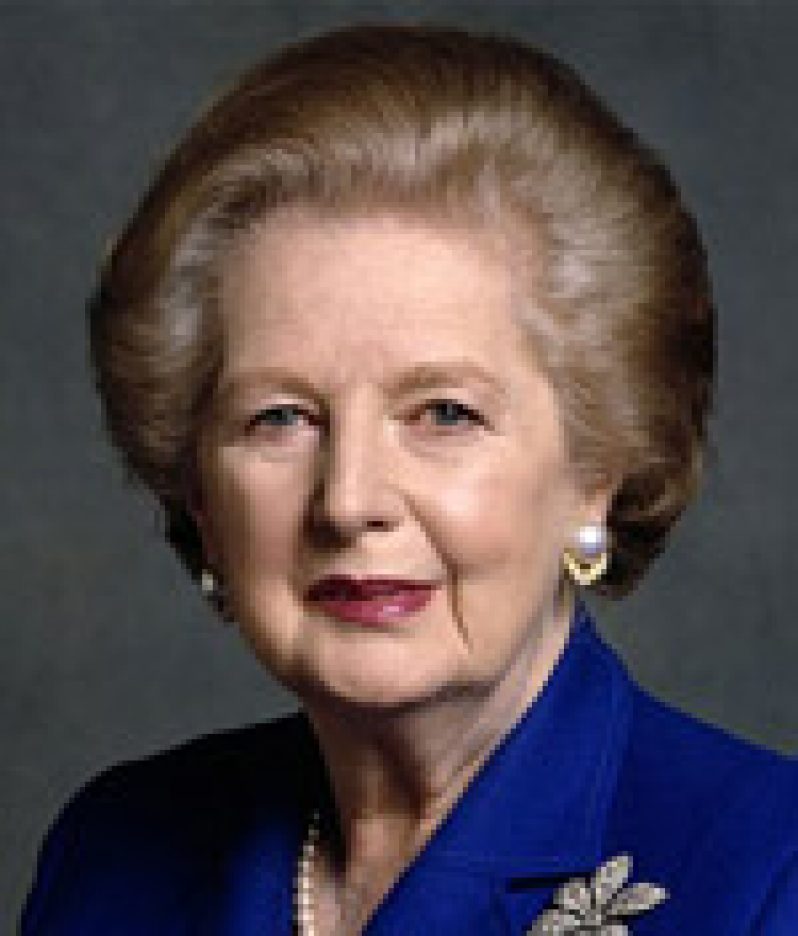FOR DAYS, if not weeks to come, we can expect virtual saturated international media coverage of Britain’s only and longest serving Prime Minister of the 20th century, Baroness Margaret Thatcher.
 Her unique political leadership style, her bullish toughness as a politician in wielding state power and intimidating dissent even within her own Conservative Party, had earned her the (un)flattering sobriquet “Iron Lady”.
Her unique political leadership style, her bullish toughness as a politician in wielding state power and intimidating dissent even within her own Conservative Party, had earned her the (un)flattering sobriquet “Iron Lady”.
That was before we came to learn and appreciate also the competence and firm political will of India’s ,Indira Gandhi and Pakistan’s Benazir Bhutto—both to fall victims of hateful political assassins. The ailing Thatcher lived to 87 and died on Monday following a stroke.
Now, increasingly, it is becoming the political norm to also have in the Caribbean/Latin American Region women heads of government who make qualitative differences to our political culture, education, legal and judicial systems and, of course in media and public relations.
Currently we have two women Prime Ministers in CARICOM—Jamaica’s Portia Simpson-Miller and Trinidad and Tobago’s Kamla Persad-Bissessar. Guyana has had its first woman Executive President in the now late Janet Jagan. Her name is virtually synonymous with Guyanese party politics.
Across in Dominica, by virtue of her own firm control of the governments she headed in Roseau, and leadership style imposed on the then ruling Freedom Party, the late Dame Eugenia Charles came to like the media-fostered image of her as a Caribbean version of Britain’s “Iron Lady”. That, incidentally, was particularly following Charles’ supporting role in aiding US President Ronald Reagan’s military invasion of Grenada in October 1983.
On Reagan and Grenada
In sharp contrast, Thatcher, as Prime Minister, who had once described President Reagan as “the second most important man in my life” (after her husband)—such was their shared ideological affinity and concept of governance—was to strongly denounce the US military invasion of Grenada.
As subsequently reported by Reagan’s Secretary of State, George Schultz in his published recollections of “Turmoil and Triumph”, Prime Minister Thatcher and her government opposed America’s ‘rescue operations’ and did so vehemently”.
Schultz quoted Thatcher as declaring: “We in the Western democracies use our force to defend our way of life. We do not use it to walk into independent sovereign territories…If you are going to pronounce a new law that wherever communism reigns against the will of the people, even though it happened internally there, the USA shall enter, then we are going to have really terrible wars in the world….”
But this same ‘Iron Lady’ of British politics, who had pursued a tough policy against immigration that had also seriously affected Caribbean nationals among Commonwealth citizens, went on record in recognizing that Mikail Gorbachev was a Rusian politician with whom she could “do business”.
So she invited him on an official visit to Britain—even before his remarkable rise as President of the then Soviet Union. Pitifully, she was not as perspicuous when it came to understanding one of the most outstanding political leaders of the 20th century whose name is written in the hearts of freedom-loving people everywhere, and most certainly in Africa—the revered Nelson Mandela.
South Africa and Mandela
What citizens of the African continent, of Asia and the Latin America/Caribbean region continue to recall with understandable deep disappointment and sadness is Prime Minister Thatcher’s harsh dismissal of the Nelson Mandela-led African National Congress (ANC) as a “terrorist organisation” and her government’s refusal to support the Commonwealth in economic sanctions against the apartheid regime in South Africa.
That Thatcherite perspective, grossly objectionable to the Labour Party and vast millions of people of the UK, prevailed right up to the downfall of South Africa’s notorious inhumane apartheid system and the emergence of the ANC to power with its first democratically elected government headed by the iconic Mandela.
With the 97-year-old Mandela just back home after his latest hospitalisation, the President of South Africa, Jacob Zuma, opted to refrain from any immediate public comment but sent a brief message expressing his government’s “heartfelt condolences and prayers” to the Thatcher family”.
Meanwhile, Prime Minister David Cameron, known to be a passionate admirer of the ‘Iron Lady’ and what the philosophy of ‘Thatcherism’ means for Britain in the current global economic recession, has already signalled his preparedness for a new Conservative Party government to pursue fiscal, economic and social policies that were associated with Baroness Thatcher.
It would not be music to the ears of Caribbean citizens to know that among Thatcherite policies Prime Minister Cameron is most anxious to pursue—when no longer tied to a coalition government with the Liberal Party- to revert to serious reductions on migration to Britain—back to approximately 54,000 in the 1990s and far from a currently estimated 200,000.
For now, the assessments will continue of the strengths and weaknesses of the ideology of ‘Thatcherism’ and how it has influenced in deepening official British and American relations and continuing respect for Britain in world affairs.



.jpg)








